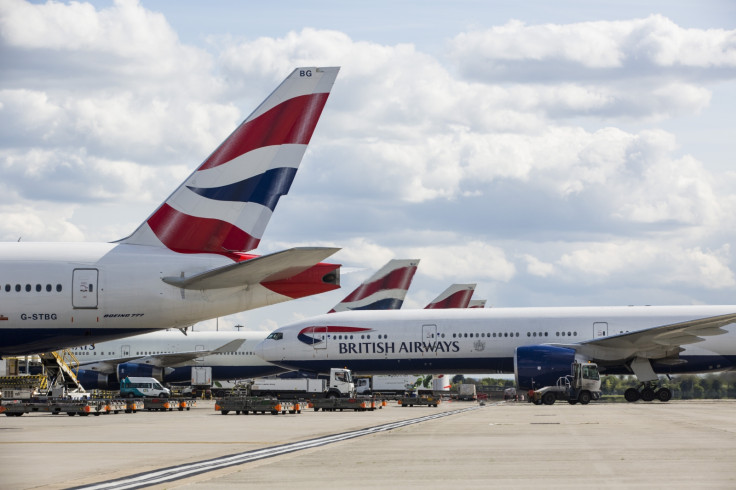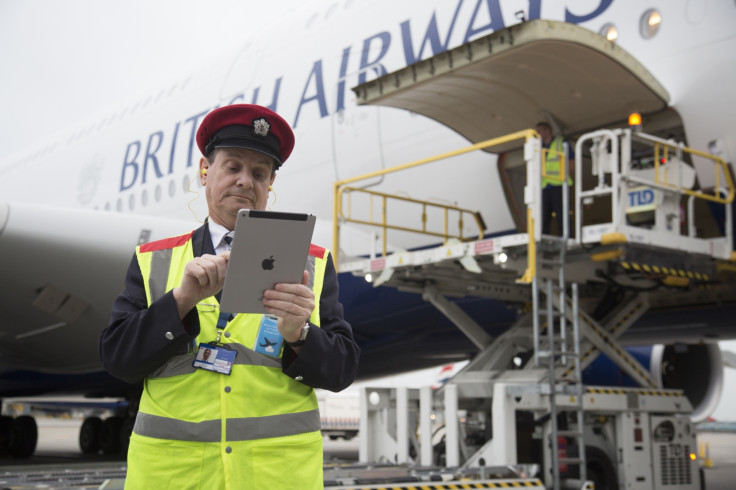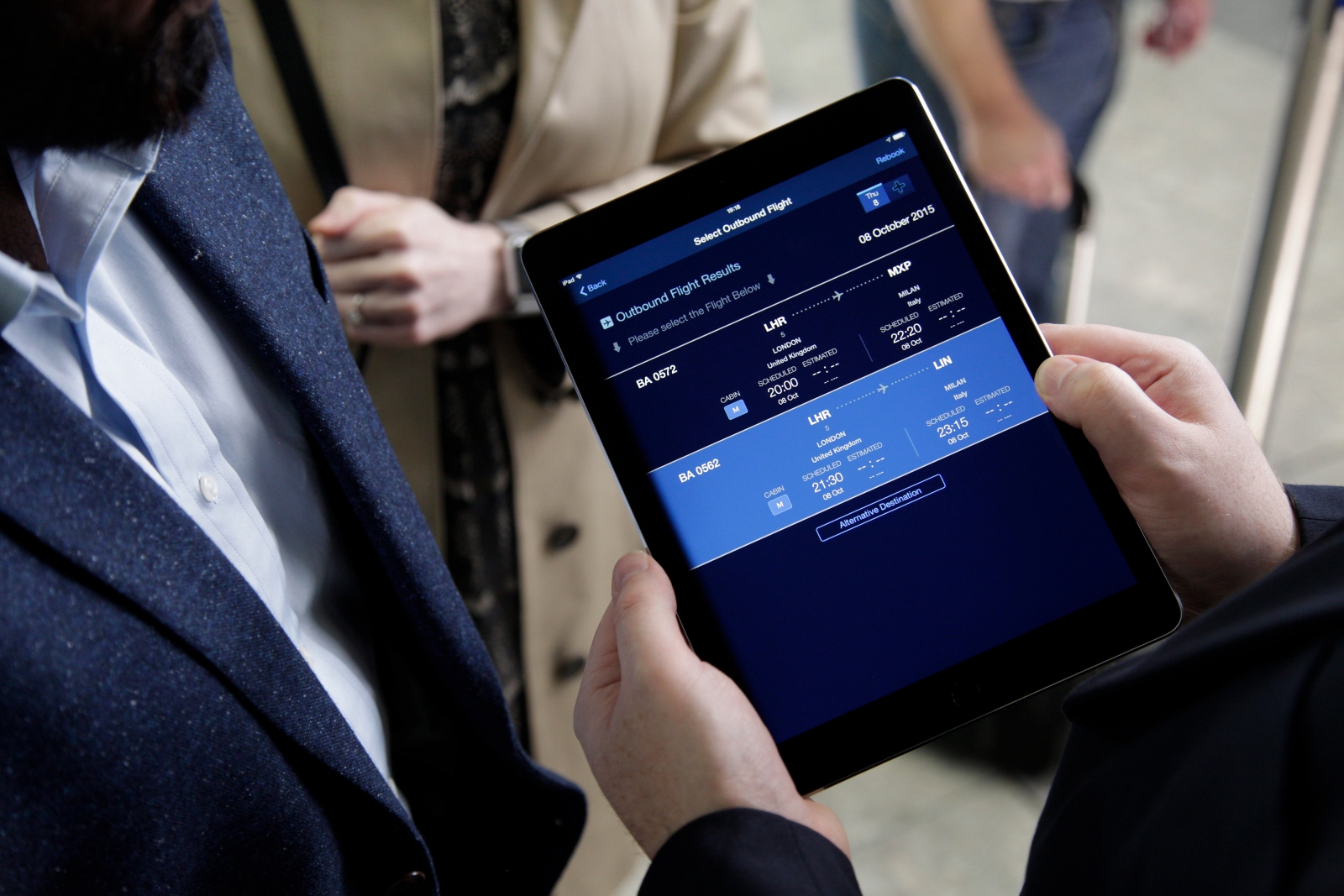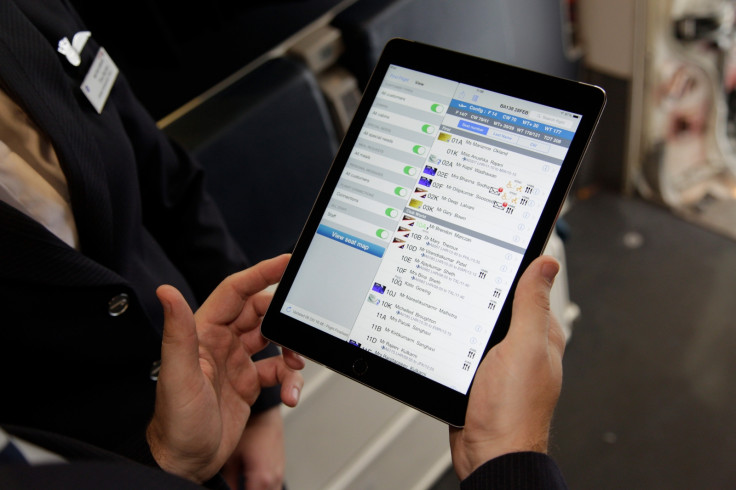Behind British Airways: How the iPad could be the most invaluable piece of tech the airline uses

In the aviation industry time is money. Airlines face an unenviable task of logistics, timing and coordination to ensure everything runs with pin-point efficiency to avoid take-off delays resulting in heavy fines, burning of expensive fuel and wrath of the cantankerous customer. This is where technology comes in and is the reason why an iPad could be one of the most valuable adoptions in British Airways' history.
While we mosey around the airport terminal sniffing perfumes in duty free, airline ground crew are scurrying around like an army of ants working with military precision to get planes departed on time. From the moment a plane lands, taxis and docks a relay ensues where passengers disembark, cleaners come in, refuelling takes place, bags are loaded and safety checks are made. British Airways aims to do all this within 40 minutes (20 if it's a smaller flight) and have passengers approaching the plane door with three minutes to spare. To achieve all this, BA turned to iPads to transform its operation.
IBTimes UK was invited to watch the turnaround of a flight at London's Heathrow Terminal 5 and what we saw was perfectly-organised chaos. It's like a formula one pit stop on a grander scale. "It takes years of training for everyone to know their part of the jigsaw," said Dale Walsh, team manager, Airport Systems. But one slip up along the chain and the whole process can cause delays, miss a departure window and can cost an airline dearly.
Transforming the turnaround of a plane
On the runway a BA turnaround manager (TRM) clutching an iPad uses an app called iLoad to oversee the strict and stressful in-and-out of a plane from Geneva. The TRM was freely able to walk around outside, under the aircraft, ticking off all the pre-flight jobs as he went, whereas before he would have been behind a desktop computer in a small hut on the tarmac. The iLoad app was able to receive real-time data of what's going on, updating how many bags have been loaded, for example, and communicating directly with the captain on load figures.

Previously this would have been a convoluted process of accessing separate systems (one for baggage, one for fuel etc) and the plane not being able to move until all was ticked off. We saw the plane leave while the TRM updated pre-flight figures on the move instead of waiting stationary for its final numbers – a move that saves vital minutes (and money) in the take-off process.
Not only was the iLoad app able to help accelerate the process it added an extra layer of security by eliminating any human error when it comes to how many bags should be on-board – if there's any unaccounted for the system will know and not let the TRM sign off the aircraft unless it's inspected.
This is just one facet of BA's process – away from the turnaround there's a whole other operation going on front of house with customer-facing personnel armed with iPads to deal with the growing swarm of passengers lining up to board and keeping them happy when airborne.
Using iPads to upgrade the flying experience
If you've watched the fly-on-the-wall documentaries you'll know air travel has the ability to turn people with even the most pleasant of personalities into raging, combustible characters. Airlines want to avoid this. British Airways adopted iPads back in 2008 and has since developed more than 40 of its own apps to make its service and operation run more efficiently. BA has apps to provide instant information to customers during flight delays and rebook a flight within 20 minutes; an app that turns the iPad into a banner to show connecting passengers where to go, and an app that can help translate language so staff can converse with non-native speakers.



When heavy fog hit London in 2015 delayed flights sparked carnage. Rather than facing a scene of angry arm-waving passengers queuing at desks for answers BA staff were able to use an iPad to get out among the crowd to update what was going on, rebook tickets and instil a sense of calm. In fact, an iPad is so pivotal to BA's day-to-day running that a minimum of 75% iPad battery is a must for all staff.
Passenger Information List (PIL) app
During a mock pre-flight briefing we were shown an app that had British Airways cabin crew beaming as they swiped through features that have "transformed" their jobs.
The Passenger Information List (PIL) contains every necessary piece of information for everyone travelling. Names, seat numbers, destination, frequent flyer status, previous flights, whether they're disabled or travelling with buggies. In one app, it contains all the information that once had to be printed out on lengthy reams of paper and annotated by hand, which would take crew a considerable amount of time to comb through. This means it cuts down on the time it takes waiting at the gate and the pre-flight preparation for staff.

On board, cabin crew are able to address customers with a more personal touch as the app puts an icon next to certain notable passengers. Details can be put on passengers' profiles, like birthdays, anniversaries, or other gems of information that crew can use to make passengers feel like they're getting a personalised service. Elsewhere, instantly accessible seat maps can help reassign anyone who might want to move away from the neighbouring toddler.
Pilots also fly the technology flag as flight plans, manuals, charts and notes are all now on iPads instead of paper, instead of carried on in weighty 25kg bags. All this reduction in paper results in a corresponding reduction in weight, which means a reduction in fuel and therefore friendlier to the environment and BA's pockets by saving a tonne of fuel on each long haul flight.
"The iOS apps we have on iPad have transformed the way we work. It has been a seamless transformation and we build on it every single day," said Abigail Comber, head of customer at BA.
What does the future hold?
When speaking with BA representatives they hinted towards a future where iBeacon technology and sensors could feed information to wearables to speed up the turnaround process even further. We may even see an app where customers can track a turnaround in real-time, seeing for themselves when their plane is being fuelled etc. It might even distract tutting passengers or give a good heads up for those still lingering in the airport bar.
While sales of the iPad have seen a slight nosedive, for enterprise solutions they're still invaluable. Anything that is able to streamline a head-spinning process to reduce turnaround time and increase savings is a spreadsheet's dream. For that reason alone the iPad is the darling employee at BA with its tech being courted by rival airlines.
"You go out there to make a difference. With iPad and iOS, we can get the aircraft inspected and airborne quicker than ever before. By putting real-time information in our hands it allows us to have a better connection with the customer," said BA representatives.
So, if iPads are making things more efficient for British Airways, "what about lowering the cost of air fare?" we hear you ask. Well, that question was met with a "definitely, maybe".
© Copyright IBTimes 2025. All rights reserved.






















